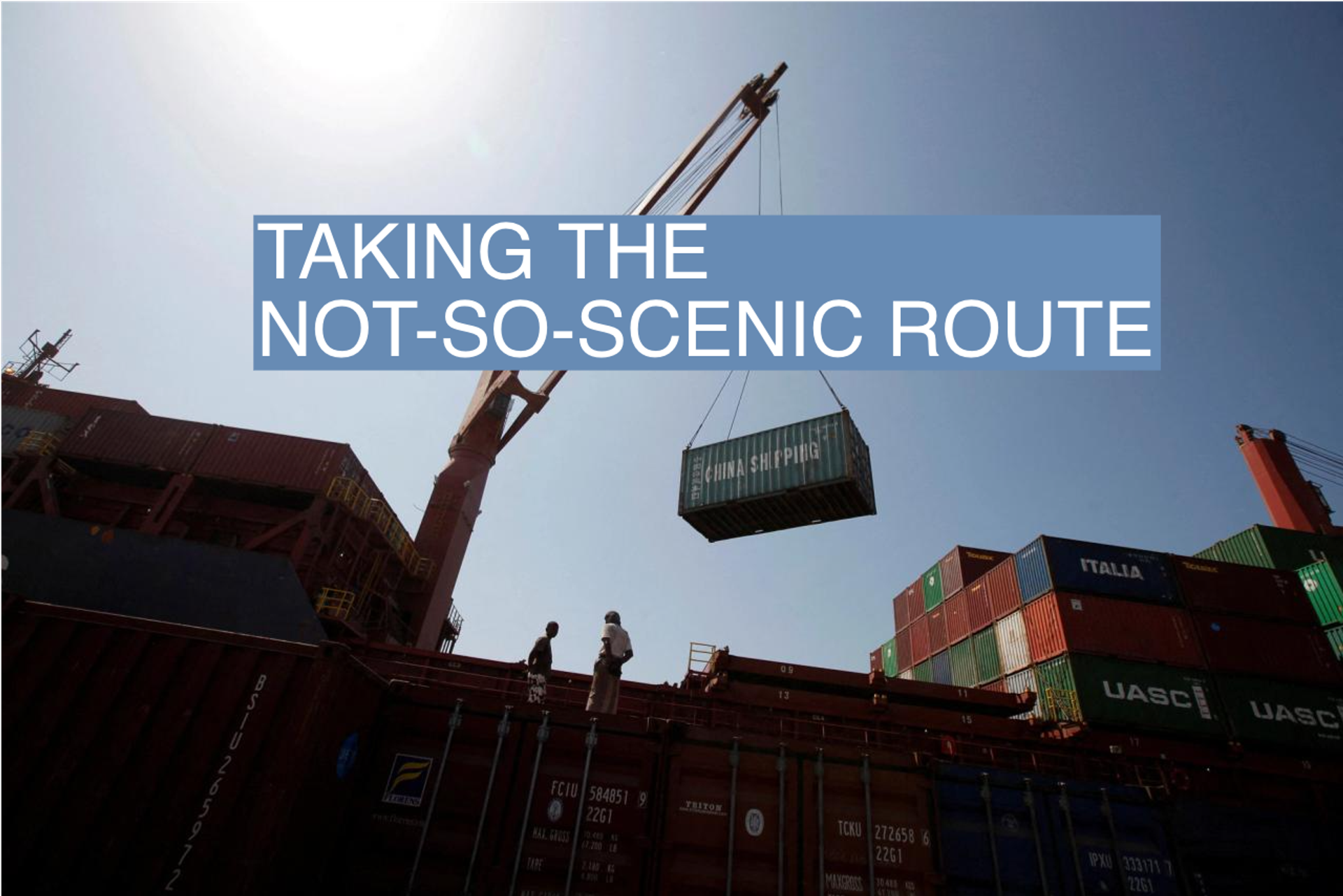The News
Rising tensions in the Red Sea caused a number of large oil companies to avoid passing their tankers through the corridor, raising prices and increasing the risk of larger economic ramifications from the Israel-Hamas war.
Continued attacks from the Yemen-based Houthi militant group on ships traversing the corridor led the U.S. and U.K. to strike Houthi targets last week. The Iran-backed Houthis have since threatened to ratchet up their attacks on the Red Sea.
Over a dozen oil tankers have steered clear of the route, instead taking the longer path around Africa’s Cape of Good Hope, according to a Reuters tally. Oil giant Shell also suspended shipping on the route, The Wall Street Journal reported, while shipments of Qatari liquefied natural gas were paused for several days before resuming Tuesday.
SIGNALS
Europe consumers could be hit hardest in the short term
Rerouting oil tankers has led to increased fuel prices, higher war risk insurance premiums, and costlier freight rates. An executive for a prominent freight operator said Tuesday that the disruptions will impact the price of consumer goods, with developed economies, especially in Europe, likely to be hit hardest. Michelin, Volvo, and Tesla also all halted production at their European plants this week, a sign of the supply chain disruptions in industries beyond shipping. The higher fuel rates, though, are likely to pull the freight industry out of the recession that bogged it down last year, NBC News reported. “This is worse than Ever Given … but it’s not as bad as COVID,” an S&P Global researcher said.
Long-term disruptions depend on length of conflict
People shouldn’t worry about the Middle East crisis spiraling into a global economic disaster — yet. That’s according to a recent Allianz Trade report, which forecast impact to the global economy would be contained if the disruptions are short-lasting. “However, if the crisis persists for several months, a doubling of shipping prices would push global inflation up” and GDP growth down, the report stated. The former chief economist for OECD put the probability of “serious disruptions to world trade” at 30%, The Guardian reported. That could have ramifications on the reelection chances of U.S. President Joe Biden and U.K. Prime Minister Rishi Sunak, who are making economic recovery central to their election pitches this year.
Impact to Asia limited, but dependent on Iran
The disruptions are unlikely to affect oil supply to Asia, but could lead to higher fuel prices on the continent, the South China Morning Post reported. Analysts are especially watching to see whether the conflict expands to the Strait of Hormuz, which is close to Iran and is more important for oil transportation to Asia than the Red Sea. “Unless Iran becomes a direct participant in the conflict, oil supplies to Asia should not be affected,” an economics professor at the business school INSEAD told SCMP. The limited impacts mirror China’s muted role in the conflict, though a widened economic crisis could lead governments in the Global South to put more pressure on Beijing to take a more active posture.

